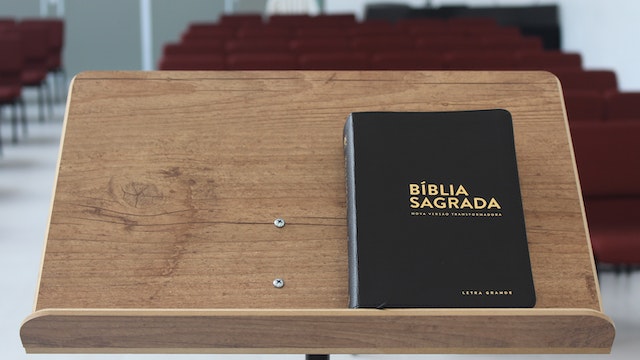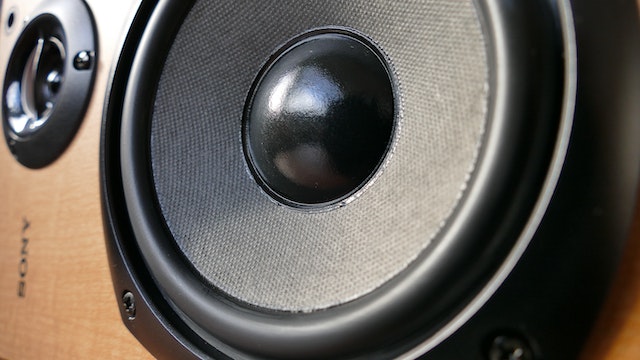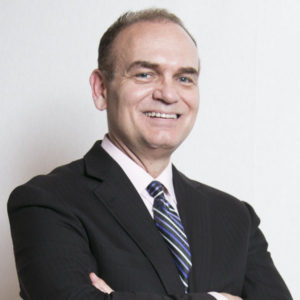When it comes to speaking do you prefer to use a lectern or do you think that it is necessary depending on the kind of speech you are giving? There is really no one answer to this question because there are so many different factors that are a part of the situation.

Here is what you need to consider:
- The Elevation and if It Helps
- Amplification of Sound
- The Weight of the Lectern
- How Tall You Are
- The Sensitivity of the Clergy
- The Expectation of Your Listeners
- The Visibility of Your Gestures
- The Vulnerability and Connection of the Audience

The Elevation and if It Helps
When you are speaking from a lectern, it means that you can be seen just about anywhere. This is usually higher than the rest of the surroundings. That is helpful if you only have a step or one more to walk up.
The lectern is also in a place usually where everyone will look at you. If you decide to step away from the lectern you will not have an advantage, if anything it makes it harder to hear and to see you.
Amplification of Sound

There is usually a microphone as well at a lectern that will allow you to be heard without having to strain your voice at all. If you have an audience of about 2000 people you are going to need to reach those that are the back of the church.
You may have a disadvantage if you step away from the lectern. Even if you have a strong voice it will be hard for you to be heard if you are speaking for more than a minute or two.
Pro Tip
Use a lectern when you need to project authority.
You can definitely make up for that if there is a wearable or carriable microphone. If not, I certainly suggest remaining at the podium. It would be difficult for you to be heard even if you had a very loud voice, especially if you spoke for more than a minute or two.
The Weight of the Lectern

Lecterns are utilized by CEOs, politicians, and members of the clergy for a reason. A lectern holds a lot of weight by nature (both real and metaphorical).
Your credibility might increase while speaking from a podium as long as your message and delivery are respectful and respectable. Credibility is essential in this situation (asking for a donation).
How Tall You Are

Lecterns’ advantages in terms of “weight” are enhanced by speakers who have comparable physical presence. In this situation, tall speakers are more advantageous. On the other side, shorter presenters could feel intimidated by the lectern’s size.
In the worst case, a speaker who is extremely short could only be able to see the top of the podium. It is well worth putting your pride aside and, if required, making up the difference using a step stool. Of course, this is completely negated by leaving the area behind the podium.
Action Item
Make sure to get out from behind the lectern whenever you can!
The Clergy and Their Reaction

You wouldn’t be wise to move out from behind the lectern if the presiding clergy member would take issue to it. Keep in mind that you are the guest in this situation, therefore don’t be disrespectful to your host. Asking them in advance is the greatest (and only) approach to gauge their level of receptivity.
In general, you should always incorporate inquiries of this nature into your audience analysis. Describe where you’d like to stand and why you prefer to stay away from the podium. In my opinion, it would be preferable to seek for permission in this situation rather than beg for forgiveness.
The Expectation of Your Listeners

You might be asked to address the congregation from the podium, depending on the customs and culture there. Some people could feel offended if the lectern is never interrupted. Again, the only way to determine this is to speak with churchgoers in advance.
Having said that, it could be advantageous for you to surprise your audience’s expectations. They will undoubtedly notice if you talk away from the lectern even if nobody else ever does. You might think about beginning at the podium and then shifting away during your speech for a little (suitable) drama.

This “breaking of convention” can be related to your main point. Perhaps your intention to shock your audience is complemented by the audience’s visual astonishment when you move away from the podium.
The Visibility of Your Gestures

There is no doubt that if you release yourself from the lectern, you can use a larger variety of gestures, provided there is no severe elevation disadvantage. A large portion of your body is hidden when you are seated behind a lectern. The only motions that are likely to be seen, depending on your height, are those that are made at or above the level of your chest.
Furthermore, any gesture you make will likely be diminished by the lectern’s “weight.” On the other hand, when you’re not using a lectern, your full body is on display. (Again, sight lines will be a factor.) You’ll be able to use a greater variety of motions, and they’ll seem bigger and work better.
The Vulnerability and Connection of the Audience

Moving away from the podium makes you appear more vulnerable. As Nick Morgan pointed out, becoming closer to your audience can often help your communication efforts.
In addition to becoming closer to your audience physically, you will also be free of the lectern’s symbolic barrier. You become more effective as you remove obstacles, both real and imagined.







